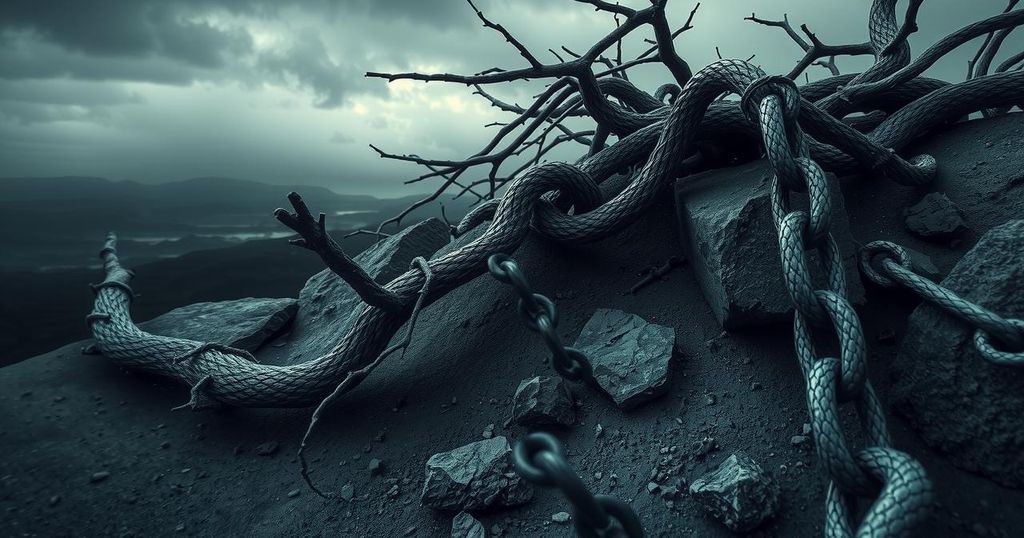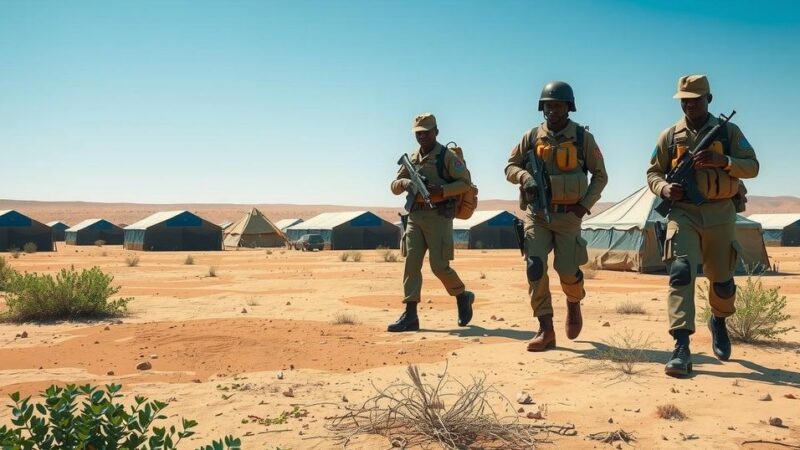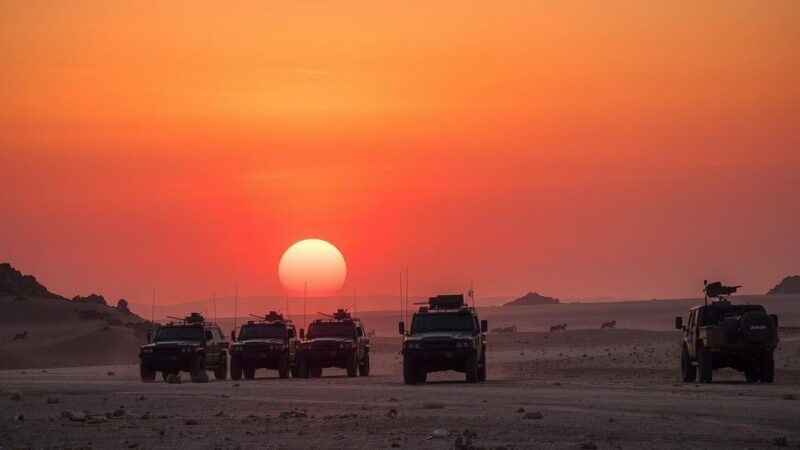Rwanda-backed M23 rebels are advancing into eastern Congo, having taken Goma, escalating a humanitarian crisis with reports of executions and sexual violence. Congolese forces have resisted further encroachment toward Bakuvu, while local young people volunteer for military service. The region suffers severe shortages of water and electricity amidst rising violence, drawing desperate calls for peace from residents.
Rwanda-backed rebels, specifically the M23 group, are intensifying their operations in eastern Congo following their seizure of Goma, the region’s pivotal city. Recent reports by the United Nations indicate a troubling escalation in violence, including executions and sexual assaults attributed to the rebels amid a significant resurgence of their longstanding rebellion.
Despite these advances, Congolese forces managed to thwart a rebel assault aimed at Bakuvu, the provincial capital of South Kivu. The M23 group has been on a campaign to capture numerous towns since gaining control of Goma, a critical humanitarian center for the approximately six million people displaced by ongoing violence.
As the M23 rebels continue their offensive, they are supported by approximately 4,000 troops from Rwanda, a level of backing that exceeds prior conflicts. U.N. experts highlight their pervasive control and the exploitation of the region’s valuable mineral resources, which are vital to global technology markets.
The U.N. human rights office reported severe violations under the M23’s reign, detailing summary executions of at least 12 individuals within a recent time frame. The situation has worsened as the rebels have occupied essential facilities, leading to forced conscription and labor practices among civilians.
In the midst of these escalating tensions, Congolese troops have also confronted allegations of sexual violence, with reports confirming that approximately 52 women were victims of rape, some cases involving gang assaults. Local military leaders have stated that these atrocities pose additional challenges within an already volatile environment.
In response to the conflict, security forces successfully repelled a recent rebel attack. Consequently, there is a notable influx of young volunteers eager to enlist in the military, following President Félix Tshisekedi’s call for an extensive mobilization effort to bolster defense capabilities.
As the humanitarian crisis deepens, Goma faces severe water and power shortages, leading residents to undertake considerable efforts to secure basic necessities. Individuals have expressed a desperate wish for peace, emphasizing their inability to continue in such dire conditions.
The M23 insists on their plans to restore normalcy in Goma, asserting that they intend to reinstate essential services in the city. In an attempt to forge a future, they propose a transition from a dysfunctional state towards a modern governance system.
The ongoing violence in eastern Congo has entrenched itself within a conflict marked by numerous armed groups, primarily driven by ethnic grievances and struggles for control over rich mineral deposits. The M23, a significant faction in this unrest, has garnered considerable external support, particularly from Rwanda. This support has facilitated their resurgence and expansion, further complicating the already dire humanitarian situation for millions affected by the conflict.
The situation in eastern Congo underlines a severe humanitarian crisis exacerbated by the resurgence of the M23 rebels and their alarming human rights violations. Ongoing clashes between rebel forces and Congolese troops illustrate the challenges in restoring peace as the population grapples with basic needs amid conflict. Continued monitoring and intervention may be crucial in addressing both the immediate fallout and the broader implications of this ongoing turmoil.
Original Source: apnews.com






